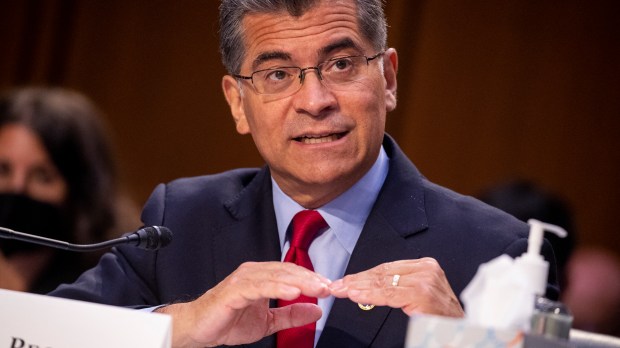During the Obama Administration, religious liberty advocates fought something that came to be known as the HHS mandate.
Under the Biden Administration, there could be a new HHS mandate, making the one from the last decade look like child’s play.
The new mandate, still in its early planning stages, goes way beyond the rule that employers who provide prescription drug coverage in their health insurance plans must include coverage for contraceptives. That mandate saw groups like the Little Sisters of the Poor making trips to the U.S. Supreme Court to fight for their religious freedom. According to a report in the National Catholic Register, the new mandate could force religious hospitals and other institutions to perform sex-change surgeries and even abortions — with no possibility for a religious exemption.
“The Biden administration’s Department of Health and Human Services (HHS) is developing new regulations for U.S. health-care law in close consultation with a coalition of activist groups intent on imposing an abortion, end-of-life and sexual-health agenda without religious-freedom exceptions,” writes the Register’s Peter Jesserer Smith. “The new rule in development has the potential for adverse effects on Catholic employers, but could prove devastating to Catholic health-care providers, including Catholic hospitals that care for one in six hospital patients in the United States.”
Reversing a reversal
The Catholic Benefits Association (CBA), a membership organization of Catholic dioceses, charities, hospitals, universities and small businesses, found out in August that the HHS and its Office of Civil Rights had informed the U.S. District Court for the District of Columbia that it was working on a new set of regulations that would replace a 2020 rule established by HHS under the Trump administration.
The Trump rule itself was a reversal of the previous administration’s requirement that doctors perform gender-transition surgeries or refer patients for them and required insurance coverage for gender-transition surgeries.
An August 13 legal filing revealed that “HHS is working on a new rule that would dispose of the 2020 rule and potentially exceed the 2016 Obama-era regulations by vastly expanding the scope of what discrimination on ‘the basis of sex’ means under the Affordable Care Act,” the Register reported.
The move to change the rule stems from a lawsuit filed by the Whitman-Walker Clinic, a Washington, D.C.-based nonprofit health system with a focus on the “LGBTQI+” community. In response, HHS has been consulting with Whitman-Walker and a number of activist groups including Planned Parenthood Federation of America, the Southern Poverty Law Center, Center for American Progress, and the Human Rights Campaign. HHS said that that the coming changes — to be completed no later than next April — will make the Whitman-Walker lawsuit moot. The court agreed to hold off the lawsuit until then.
The Leadership Conference on Civil and Human Rights, which is coordinating the activist groups, said that HHS should develop a new rule in a way that could roll back the religious exemptions won through litigation and permanent injunctions.
“Among its demands are mandatory coverage and performance of gender-transition services, including cross-sex hormones, sex-reassignment surgeries, cosmetic surgeries, voice modification and fertility treatments for infertile couples, same-sex couples and some single persons,” the Register reported.
If HHS follows the road map laid out by the Leadership Conference, all employers of any size with health plans, insurers, self-funded plans, federal funding recipients and their subcontractors, Medicare and Medicaid providers and Catholic hospitals and health-care providers would be affected, the CBA told the Register.
Such a change would “place Catholic health-care providers in an untenable position,” said Doug Wilson, the organization’s CEO, forcing them to choose between staying in business “or provide services and products that are in direct conflict with our basic Catholic teachings.”



